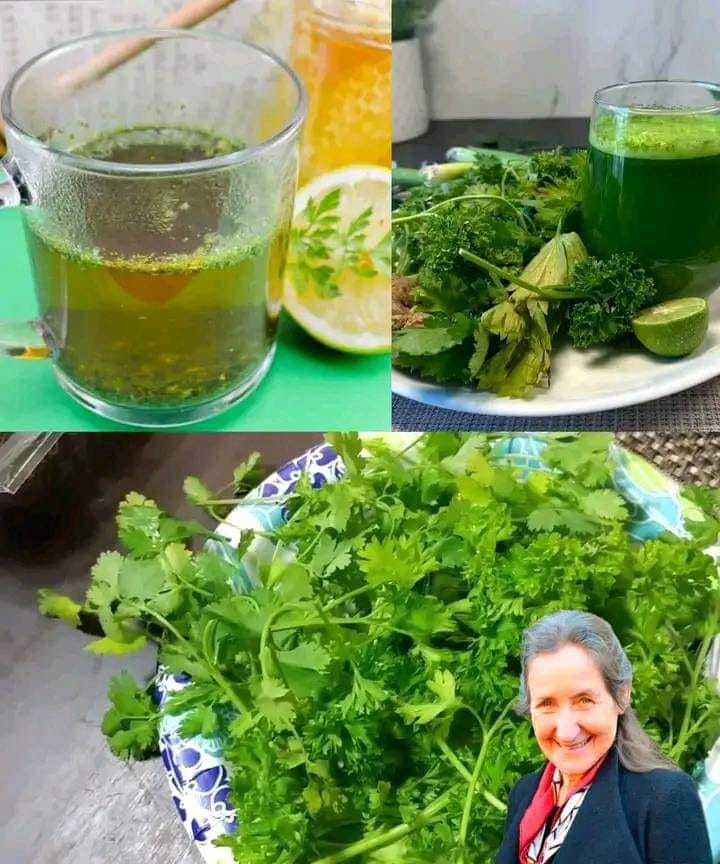Parsley (Petroselinum crispum), often seen as a mere garnish, is actually a potent herb celebrated for its exceptional anti-aging properties and myriad health benefits. But can it truly erase wrinkles and rejuvenate your skin? Let’s uncover the science behind parsley and how it can transform your health and beauty routine.

Does Parsley Really Help Reduce Wrinkles?
Parsley’s high vitamin C content (133 mg per 100 grams) is a game-changer for skin health. This powerhouse nutrient boosts collagen production, a key factor in reducing fine lines and wrinkles. By promoting skin elasticity and repairing damaged tissues, parsley helps your complexion appear smoother and more radiant.
Additionally, its antioxidants combat free radicals that accelerate aging and damage skin cells. A study published in Phytotherapy Research highlights how vitamin C-rich foods like parsley can improve skin elasticity and reduce oxidative damage, keeping your skin youthful and glowing.
Unmatched Health Benefits of Parsley

1. Glowing Skin and Youthful Complexion
Packed with beta-carotene and vitamin C, parsley protects the skin from harmful UV rays while reducing visible signs of aging. Regular use of parsley-infused masks or consuming parsley can leave your skin firm, hydrated, and luminous.
2. Natural Detoxifier
Parsley acts as a diuretic, helping the body flush out toxins and reduce water retention. A cup of parsley tea not only supports kidney function but also aids in achieving clear and hydrated skin.
3. Heart Health Booster
Rich in folate (150 mcg per 100 grams) and potassium, parsley supports cardiovascular health by regulating homocysteine levels and managing blood pressure. Including parsley in your diet can enhance circulation and protect against heart disease.
4. Digestive Aid
Parsley’s fiber content and natural enzymes improve digestion, alleviate bloating, and promote nutrient absorption. Adding parsley to your meals can keep your gut healthy and comfortable.

How to Use Parsley in Your Routine
1. Parsley Tea
Steep 1–2 teaspoons of fresh or dried parsley leaves in hot water for 5–10 minutes. Add honey or lemon for extra flavor. This tea detoxifies the body and supports glowing skin.
2. DIY Face Mask
Blend a handful of parsley leaves with a tablespoon of yogurt and a teaspoon of honey. Apply the paste to your face and leave it on for 15–20 minutes before rinsing with lukewarm water. This natural mask hydrates, refreshes, and rejuvenates your skin.
3. Smoothies and Juices
Add a handful of fresh parsley to your green smoothies or morning juice. Pair it with spinach, cucumber, and apple for a nutrient-rich, refreshing drink.
4. Culinary Magic
Sprinkle freshly chopped parsley on soups, stews, and roasted vegetables. Mix it into salads, pasta, or rice dishes for added flavor and nutrition.
5. Parsley Pesto
Swap out basil for parsley in your favorite pesto recipe. Blend parsley with olive oil, garlic, Parmesan cheese, and nuts for a zesty, nutritious sauce that’s perfect for pasta or sandwiches.
Cautions and Precautions
While parsley is safe for most people, moderation is key.
- Pregnancy: Avoid consuming large amounts as it may stimulate uterine contractions.
- Medication Interactions: Those on blood thinners should be cautious due to parsley’s high vitamin K content, which can interfere with medications.
- Allergies: If you’re allergic to plants in the Apiaceae family (like celery or carrots), introduce parsley in small amounts to test your reaction.
Final Thoughts
Parsley is far more than a garnish; it’s a powerhouse herb with remarkable anti-aging and health benefits. Whether you’re sipping on parsley tea, applying a soothing mask, or incorporating it into your meals, this herb can transform your routine and enhance your overall well-being.
By making parsley a regular part of your life, you’re not just adding flavor to your meals—you’re investing in your skin, heart, and digestive health. Embrace the potential of this vibrant herb and discover a natural, effective path to wellness.
Disclaimer: This article is for informational purposes only and should not replace professional medical advice. Consult a healthcare provider before starting new health practices or using parsley therapeutically.





